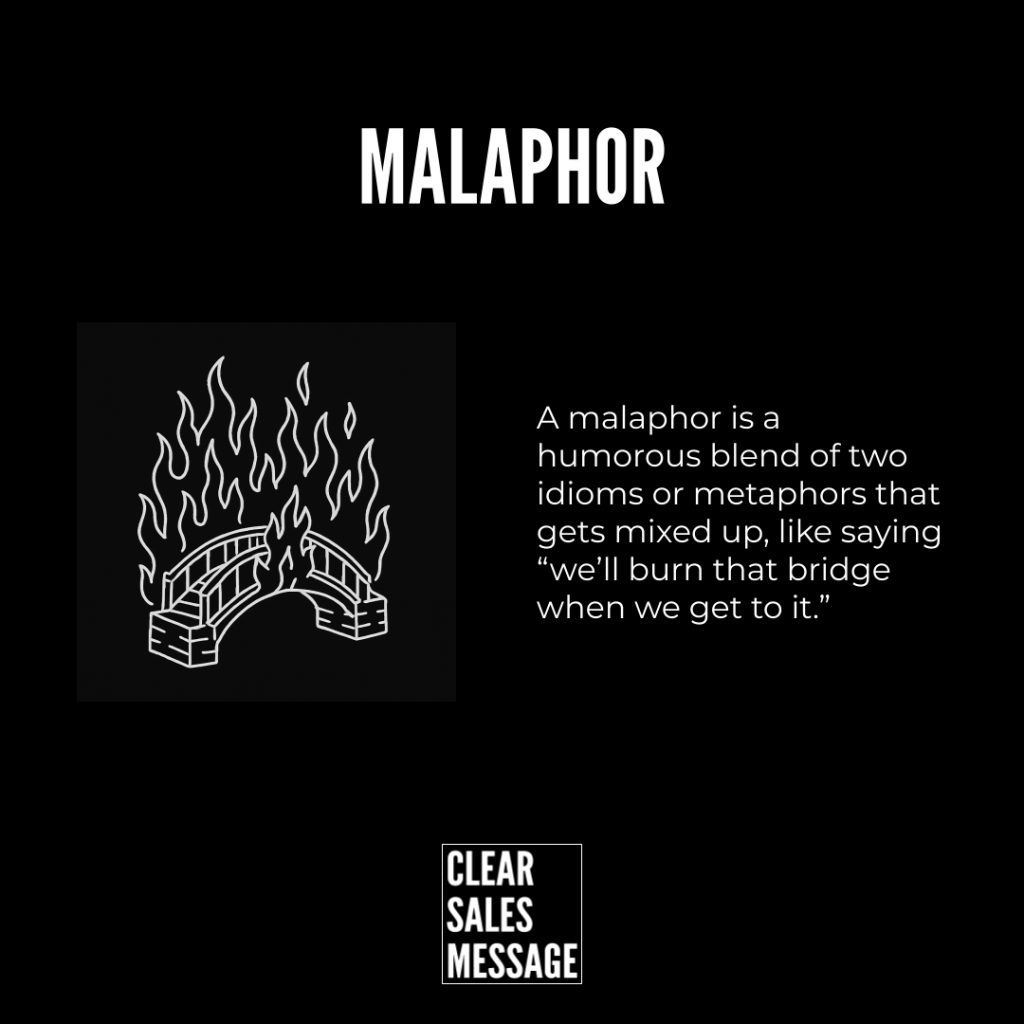Practical Sales Training™ > Wordplay > Malaphor
What is a Malaphor?
A malaphor is what happens when two idioms get mixed together by mistake. It’s a blend of malapropism and metaphor, creating a phrase that’s often funny, sometimes confusing, and occasionally spot-on.
Here are a few examples:
-
“We’ll burn that bridge when we come to it.”
-
“It’s not rocket surgery.”
-
“I’m going to nip this in the butt.”
-
“You’ve opened a whole new can of worms in Pandora’s box.”
You might have said one without even realising. They happen when your brain grabs two familiar phrases at once and fuses them together.
Why Do Malaphors Work?
Even though they’re technically mistakes, malaphors often work because:
-
They’re unexpected. Twisting two common phrases into something new makes people stop and think.
-
They’re memorable. A mixed-up idiom stands out more than one we’ve all heard a hundred times.
-
They’re funny. That bit of linguistic chaos adds humour and personality.
Sometimes a malaphor says something even more interesting than the originals. They can be surprisingly clever.
How Can You Use Malaphors?
Malaphors can add charm, humour, and originality to your communication. Used deliberately, they’re a great way to sound more human and less scripted.
In Copy or Branding
A well-timed malaphor adds playfulness to your message:
-
“Let’s not put all our ducks in one basket.”
-
“It’s time to take the bull by the horns and run with it.”
They can help you stand out in a world of predictable marketing speak.
In Presentations or Speech
Malaphors are great for catching attention and breaking the ice:
-
“We’re not reinventing the wheel here, just thinking outside the box.”
-
“We can kill two birds with one silver lining.”
Even when people spot the mix-up, that’s part of the fun.
In Character Writing or Brand Voice
Using malaphors can give a character or brand a distinct personality. Whether clumsy, quirky, or clever, the way someone speaks says a lot about them.
In Summary
A malaphor is what happens when idioms collide. Part mistake, part creativity, they bring a spark of humour and originality to everyday language.
If you want your words to feel more natural, unexpected, or memorable, try mixing your metaphors on purpose. Just make sure your audience is in on the joke.
See also



